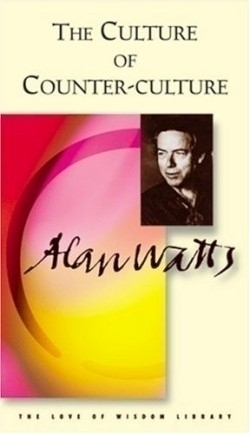
The Culture of Counter-Culture
Knowledgeable, earnest, and always engaging, Alan Watts was one of the most popular and effective purveyors of that specifically American decoction of Eastern religious philosophies which permeated the counter-cultural activities of the sixties.
These edited transcripts of lectures dating from the middle years of that disturbing decade will serve newcomers to Watts as a useful and accessible introduction to his work. But for readers more familiar with the author’s influential apologetics, this collection offers little that is new. Over the course of his long career, Watts habitually revered to the same themes, the same concerns, and, often, the same analogies to elucidate them. Watts staked out this territory in the early (1958) essay “Beat Zen, Square Zen, and Zen,” which, in its City Lights edition of 1959, was as much required reading for novitiates into the counter-cultural movement as Kerouac’s The Dharma Bums and Ginsberg’s Howl.
Perhaps the most urgent of Watts’ concerns is what he perceived to be a sort of spiritual absenteeism endemic to mainstream American culture: “We say of a person who is insane that he is not all here,” Watts says. “Not being all here is our collective disease.” These informal, often impassioned, and ultimately persuasive “talks” always lead toward the same prescriptive injunction: “Please,” he bids us. “Wake up.” Although grounded in the socio-political milieu of the sixties, Watts’ critical appraisal of American culture remains cogent and compelling. And his syncretic approach to both Eastern and Western religious, philosophical, and pharmacological traditions should find a ready and receptive audience with a new generation of spiritual seekers.
Reviewed by
Nick Bozanic
Disclosure: This article is not an endorsement, but a review. The publisher of this book provided free copies of the book to have their book reviewed by a professional reviewer. No fee was paid by the publisher for this review. Foreword Reviews only recommends books that we love. Foreword Magazine, Inc. is disclosing this in accordance with the Federal Trade Commission’s 16 CFR, Part 255.
